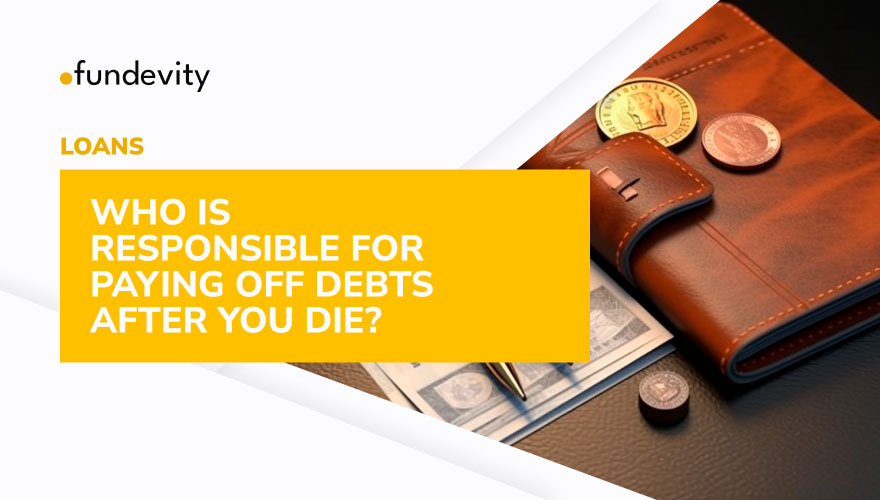What Happens to Your Debts After You Die?

As we approach the end of our lives, it’s natural to start thinking about what will happen to our assets and debts after we pass away. While it may be difficult to think about, it’s important to understand what will happen to any debts that you may owe.
In general, when you die, your debts become the responsibility of your estate. Your estate is the sum of all your assets, including property, investments, and cash. If your estate is sufficient to cover your debts, then your creditors will be paid in full. If your estate lacks funds, your creditors may forgive your debts and end up with no payment.
How Do You Pay Debts After Passing Away?
The process of paying off debts after someone dies can be complex and lengthy. It usually involves the following steps:
- The individual who will be responsible for handling the estate’s affairs is named an executor. The duties of the executor include overseeing the administration of the estate and seeing to it that all debts are paid in full.
- The executor identifies all of the assets and debts of the deceased. This may involve hiring an appraiser to value property, and gathering information from banks and other financial institutions.
- The executor notifies the creditors of the deceased that they have passed away. This gives the creditors an opportunity to file a claim against the estate.
- The executor uses the assets of the estate to pay off the debts of the deceased. This process usually involves selling property, liquidating investments, and using cash from bank accounts.
- Once all the debts are paid, the remaining assets are distributed to the beneficiaries of the estate.
Who Is Responsible for Paying Off Debts After You Die?
As mentioned earlier, the executor of your estate is responsible for paying off your debts after you die. However, if your estate is not sufficient to cover your debts, then your family members are generally not responsible for paying them off. There are a few exceptions to this rule, such as if your family members co-signed on a loan or credit card.
It’s also worth noting that some states have community property laws. These laws require that both spouses are responsible for any debts incurred during the marriage, regardless of whose name is on the account. Simply put, your spouse can still be indebted after you pass away.
What Happens to Your Credit Score After You Die?
Your credit score is a measure of your creditworthiness, and it’s used by lenders to determine if they should lend you money. After you die, your credit score becomes irrelevant because you are no longer applying for credit.
However, your credit report may still show your outstanding debts and any missed payments. Therefore, it’s essential to ensure that your outstanding debts are paid off or transferred to your heirs or estate to avoid any legal implications.
Conclusion
When it comes to estate planning, it’s crucial to know what will happen to your debts after you die. This ensures that you distribute your assets as per your wishes and settle your debts.
In addition, discussing your estate plan and debts with family members can help them prepare for the future. Taking these steps will enable you to ensure that your loved ones receive proper care even after your demise.
FAQs
Q: Can creditors collect debts from my family after I die?
A: Generally, creditors cannot collect debts from your family members after you die. However, there are some exceptions, such as if your family members co-signed on a loan or credit card.
Q: What happens if I don’t have an executor for my estate?
A: If you don’t have an executor, then the court will appoint one. It’s generally a good idea to name an executor in your will so that you have more control over who manages your estate.
Q: Can I leave my debts to someone in my will?
A: No, you cannot leave your debts to someone in your will. Your estate holds the responsibility of paying off your debts, and it will settle them before distributing any assets to your beneficiaries.


